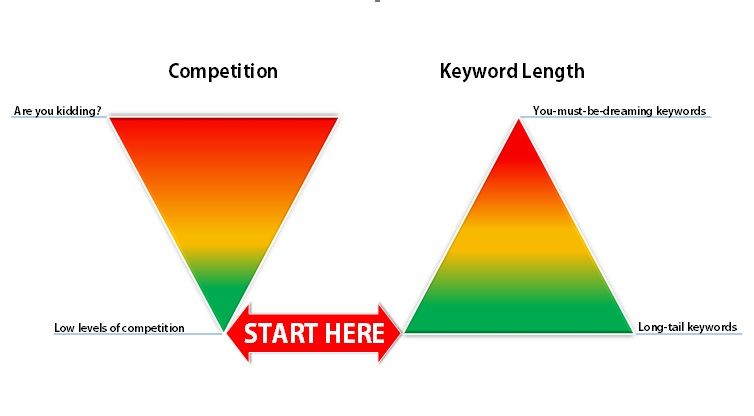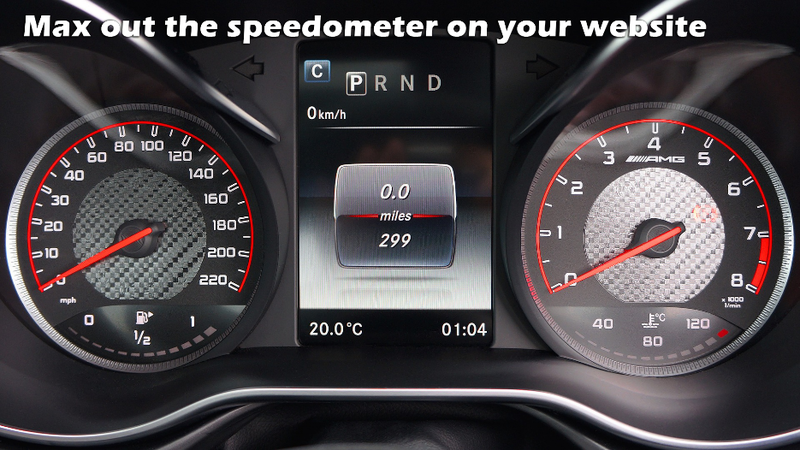Are You Making These 6 SEO Mistakes That Kill Your Website Rank?
- SEO |
Then there's the even worse situation where you were at the top of the listings and suddenly, your website tanked and practically disappeared from Google's SERPs completely.
So, what do you do? You check if you're making any of the following mistakes and then fix them.
Choosing Overly Competitive Keywords
You run a keyword search and you come up with a huge list of awesome looking keywords that have a gazillion searchers each month. You figure you've got it made. Three years later, you still only get two people visiting your website, despite the fact that you have over a thousand articles targeting these awesomely amazing keywords.
The bad news is that those keywords are probably less than awesome and certainly not amazing because there are a bajillion other businesses building the same list as you and targeting those same keywords. And some of them have a budget bigger than you could hope to have if you slaved away 24/7 for the next century.
So, instead of giving yourself an ulcer and trying to compete with giants right off the bat, start small. Go for long-tail keywords with a lot less competition. Generally, you'll find that competition is inversely proportional with keyword length, i.e. the longer the keyword, or keyphrase if you want to be particular, the lower the level of competition.
Think of it as an inverted triangle and start at the bottom. When you have huge amounts of traffic and Google thinks the sun shines out of your website, then you can start hitting those really competitive keywords. Until then, stick to low competition keywords, i.e. the ones us poor mortals can actually hope to rank for some time this millennium.

Focusing on Your Business More Than Your Audience in Your Keyword Research
When doing keyword research, a lot of us have a tendency to focus on the products and services we offer. We spend hours looking for relevant keywords - at least the ones we think are relevant. But we completely forget about our audience and the terms they actually use to search.

People are using long-tail keywords more and more to run their searches because of the ridiculous number of websites online. They've learned that the more targeted their search is, the less likely they are to have to search through a gazillion webpages to find what they're looking for.
So, someone isn't going to search for children's backpacks. They'll search for girl's hot pink Hello Kitty backpack. In other words, they'll search for precisely what they want.
Luckily, though, these long-tail keywords are much easier to rank for because they have less competition. But to find out how your audience searches, you need to get to know them a little bit better, so do your market research, get to know your target market and only then do your keyword research.
Ignoring Local Marketing
According to Google, about 33% of searches include a place or a location, so if you aren't including local elements on your website, you are hurting your chances of ranking highly. Even if your business isn't constrained by geography, you'd still benefit from doing some local marketing because it will increase overall visibility and awareness. In other words, make sure everyone in your area, from your neighbors to the furthest suburb knows about your business.

So, create some locally targeted content, provide detailed information about your company to improve the chances of showing up in the "direct data" portion of the SERPs, optimize for voice search and definitely make sure your website is very, very mobile friendly.
Not Using Social Media Correctly
While it's an established fact that social media can increase your search engine visibility, and if you're not on social media you're missing out on a lot of SEO juice for your website, it's just as important to do it properly.
First of all, if you're spreading yourself too thin over every social media platform that you can think of just because you've heard it offers results, you're setting yourself up for failure. Trying to juggle a ridiculous number of platforms at the same time is impossible, especially since the key to success on social media is being active.

Instead, focus on a few platforms at first that are most relevant to your business until you get the hang of things and build a decent following. Then, you can move on to more if necessary.
How do you know which ones are most suitable for your business? Do your research. Check where most of your competitors are, find where your target market hangs out and see what type of content is being posted on each specific platform and pick the best one for you.
Also, make sure that you make it easy for people to share your content. This is an on-page issue related to social media, but it's really important. People are inherently lazy and forgetful. Even if they like something they've read on your website to the point that they feel it's the next best thing after sliced bread, they still won't go out of their way to share it unless you make it stupidly easy for them to do so.
On that note, you also need to make sure you get your Open Graph meta tags right because they can have a massive impact on your conversions and CTR. Open Graph meta tags allow you to control what shows up when your content is shared on social media, including the image, title and description. They might not affect on-page SEO all that much, but they will certainly have a significant impact on how your links perform on social media, which is why you can't afford to ignore them.
Not Optimizing Your Website
If you haven't optimized your website for the search engines and for users, your website rank will stay in the toilet, no matter what you do. Of course, what's considered good on-page SEO changes with every change to Google's algorithm, but there are some basic principles you want to stick to. And, of course, make changes as Google does to make sure you keep that rank.
So, a few things you need to make sure you're doing on your website are:
• Ensuring fast load times;
• Offering a great user experience through intuitive navigation and an attractive design, among others;
• Avoiding things that irritate your users, like overlays that interrupt the experience;
• Optimizing title, content, external anchor links, alt attributes, URLs, meta descriptions and image file names with your targeted keywords;
• Including related terms and phrases in your content to increase relevance;
• Also optimizing your meta descriptions for searchers to get clicks;
• Creating awesome content that's better than what's in the top 10 results.

Not Keeping Your Finger on the Pulse of the Industry
With so much to do, reading up on what recent brain farts the geniuses at Google have had might seem like a monumental task. Unfortunately, though, if you want to make sure you maintain or grow your website's rank, you need to be stalking Google like crazy.

Subscribe to websites like Search Engine Roundtable, Search Engine Land and Search Engine Watch and keep a watchful eye on what they publish. You don't need to read absolutely everything - though you'll learn a lot if you do - but, at the very least, read any news coming from Google, such as the quick post and interview where Andrey Lipattsev said that the top three factors Google uses to rank a website are content, links and RankBrain, with the first two being the most important.
These aren't the only SEO mistakes out there, but they are a good starting point for you to analyze your website and see where you're going wrong. What Google ultimately wants is to make the people using their search engine happy by providing them with excellent quality and relevant results to their searches because that way people keep using their search engine and they keep making money. So, if you can help Google do that, your life will be a lot easier when you are trying to rank your website.